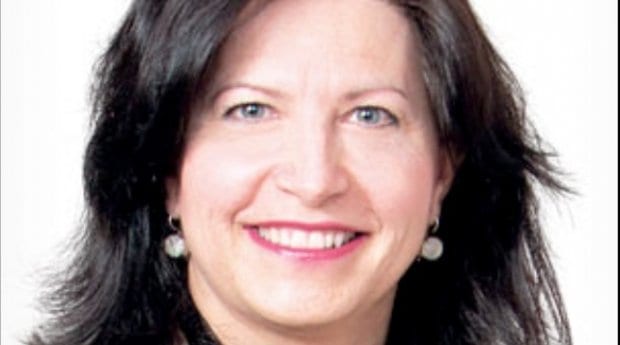Despite calls from some members to withdraw support for Trinity Western University’s (TWU) proposed law school, the Law Society of New Brunswick (LSNB) maintained its support Jan 9 after directors tied 12-12 in a vote to repeal.
“It’s not an easy issue,” LSNB council president Hélène L Beaulieu tells Xtra. “It was down the middle. We did not anticipate that [result] at all.”
The society had voted 14 to five to accept TWU’s proposed school on June 27, 2014, following the lead of the Federation of Law Societies of Canada. But LSNB members voted 137 to 30 at a special general meeting in September to direct the council to rescind its approval.
At issue in New Brunswick, and for many other provincial law societies also grappling with the issue, is TWU’s community covenant, which states that students must agree to uphold Christian biblical teachings and abstain from any sex that “violates the sacredness of marriage between a man and a woman.” Failure to uphold these commitments, the student handbook says, could result in discipline or dismissal.
The September resolution, passed by a clear majority of LSNB members, reads in part, “The accreditation of Trinity Western University, while it maintains and promotes the discriminatory policy reflected in its Community Covenant Agreement, would not be in the public interest or the interest of justice and would not serve to promote and improve the status of lawyers in society.”
The resolution found that the covenant “discriminates against members of the LGBTTQ community.”
Across the country, debate over approving the school has focused on balancing religious and equality rights. “I think the result is very indicative of how difficult this issue is,” Beaulieu says. The debate was “very passionate on both sides. Arguments were presented in a very respectful manner and very eloquent.”
But, she says, with the issue still at a standstill in several provinces and court cases pending in Nova Scotia, BC and Ontario, the university’s ability to open a law school remains thwarted. She says the LSNB will be watching those cases. “This result is indicative of the difficult issue that the courts will have to decide,” she says.
Another obstacle, she notes, is the BC government’s Dec 11 withdrawal of its approval for the school. “Our approval was conditional on the law school being approved,” she says. “Council’s priority is protection of the public interest and in this case ensuring our profession represents all of the communities that lawyers serve. As well, the law society has additional safeguards to ensure both religious freedom and the right to sexual orientation without discrimination.”
TWU president Bob Kuhn, upon hearing the LSNB decision, says, “That’s great. I think it’s an appropriate decision on the part of New Brunswick.” Kuhn says the fact that New Brunswick’s approval is conditional on the BC government approving the school creates something of a Catch-22. “It’s not uncommon for approvals to be conditional on other things being in place.”
“We are very pleased with the LSNB’s decision to stand by its original decision of June 27, 2014,” adds TWU spokesperson Guy Saffold. “That decision was based upon the Federation Approval Committee’s report, careful consideration of submissions, and the judgment of the Supreme Court of Canada in 2001. Today’s decision by the council in New Brunswick has reaffirmed that process.”
In 2001, the Supreme Court upheld TWU’s right to teach Christian values to would-be teachers and to insist that incoming students sign its covenant. The court found that the university’s teacher-program graduates are entitled to hold “sexist, racist or homophobic beliefs” as long as they don’t act on them in the public-school classrooms to which they might be assigned.
“The factual circumstances are almost identical, and the Supreme Court of Canada has not changed its interpretation of either administrative law principles or balancing of rights in such a manner as to justify the Supreme Court reversing itself,” Kuhn told Xtra in January 2014.
Ted Flett, a member of OUTLaw, the LGBT student group at the University of New Brunswick’s law school, tells Xtra the vote is “a terrible decision.”
“The Law Society of New Brunswick council is out of step with its members,” Flett says. “It’s extremely disappointing to those of us who protect human rights across Canada.” He says OUTLaw will be meeting soon to discuss its options. “Right now, we’re licking our wounds and recovering.”
Flett also questions the society’s procedure. He says the society ignored a student petition and voted by secret ballot, which he believes lacks transparency and accountability. Also, he says, it’s disturbing that the council has no mechanism to break a tie. He says higher courts such as the Supreme Court of Canada have odd numbers for just such situations.
Dispute over approval of the school also divided BC lawyers — albeit with a different ending that has since resulted in a TWU lawsuit against the Law Society of British Columbia (LSBC).
In April, the LSBC approved TWU’s law school after vigorous debate by directors. However, a member-led petition forced a special general meeting in June, where members urged the directors to reconsider. The directors opted to hold a referendum on the issue, where BC’s lawyers voted 74 percent against approval. On Oct 31, the LSBC honoured its members’ referendum results and reversed its earlier approval.
TWU is now suing the LSBC, arguing that the referendum was invalid since directors, not members, are charged with such decisions.
TWU is also suing the law societies of Nova Scotia (where a hearing was held in December) and Ontario (where a hearing has yet to be scheduled).

 Why you can trust Xtra
Why you can trust Xtra


